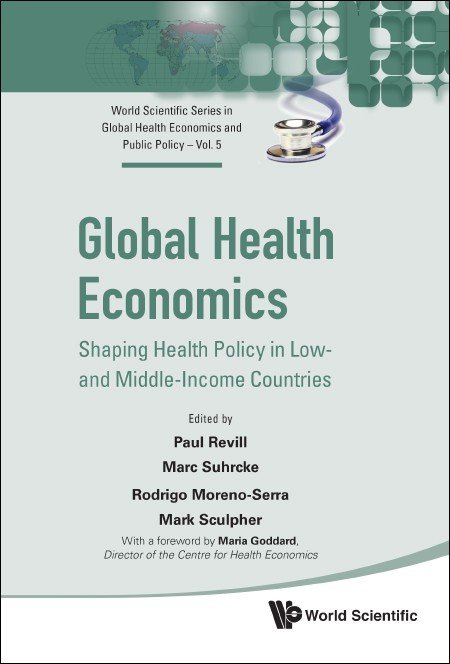System Upgrade on Tue, May 28th, 2024 at 2am (EDT)
Existing users will be able to log into the site and access content. However, E-commerce and registration of new users may not be available for up to 12 hours.For online purchase, please visit us again. Contact us at customercare@wspc.com for any enquiries.
This book contains a collection of works showcasing the latest research into global health economics conducted by leading experts in the field from the Centre for Health Economics (CHE) at the University of York and other partner research institutions. Each chapter focuses upon an important topic in global health economics and a number of separate research projects. The discussion delves into health care policy evaluation; economic evaluation; econometric and other analytic methods; health equity and universal health coverage; consideration of cost-effectiveness thresholds and opportunity costs in the health sector; health system challenges and possible solutions; and others. Case study examples from a variety of low- and middle-income countries (LMIC) settings are also showcased in the final part of this volume.
The research presented seeks to contribute toward increasing understanding on how health policy can be enhanced to improve the welfare of LMIC populations. It is strongly recommended for public health policymakers and analysts in low- and middle-income country settings and those affiliated to international health organizations and donor organizations.
Contents:
- Health Care Provision and Health:
- Assessing the Impact of Health Care Expenditures on Mortality Using Cross-Country Data (Ryota Nakamura, James Lomas, Karl Claxton, Farasat Bokhari, Rodrigo Moreno-Serra and Marc Suhrcke)
- Economic Evaluation:
- Allocating Scarce Resources — Tools for Priority Setting (Jessica Ochalek, Paul Revill and Michael Drummond)
- Cost-Effectiveness Thresholds: Guiding Health Care Spending for Population Health Improvement (Paul Revill, Jessica Ochalek, James Lomas, Ryota Nakamura, Beth Woods, Alexandra Rollinger, Marc Suhrcke, Mark Sculpher and Karl Claxton)
- Fairer Decisions, Better Health for All: Health Equity and Cost-Effectiveness Analysis (Andrew J Mirelman, Miqdad Asaria, Bryony Dawkins, Susan Griffin and Richard Cookson)
- Economic Evaluation of Social Care and Informal Care Interventions in Low- and Middle-Income Countries (Helen Weatherly, Rita Faria, Alexandra Rollinger, Bernard van den Berg, Levison Chiwaula, Pritaporn Kingkaew, Aurelio Mejia, Janet Seeley, Stella Settumba and Sax Sandanam)
- Health System Issues:
- Paying for Performance for Health Care in Low- and Middle-Income Countries: An Economic Perspective ( Martin Chalkley, Andrew J Mirelman, Luigi Siciliani and Marc Suhrcke)
- Public Financial Management and Health Service Delivery: A Literature Review (Yevgeny Goryakin, Paul Revill, Andrew J Mirelman, Rohan Sweeney, Jessica Ochalek and Marc Suhrcke)
- Demand-Side Financing in Health in Low-Resource Settings (Tim Ensor and Suresh Tiwari)
- A New Approach to Measuring Health Development: From National Income Toward Health Coverage (and Beyond) (Rodrigo Moreno-Serra, Arne Hole and Peter C Smith)
- Case Studies: Application of Methods:
- Supporting the Development of Health Benefits Packages (HBPs): Principles and Initial Assessment for Malawi (Jessica Ochalek, Gerald Manthalu, Dominic Nkhoma, Finn McGuire, Alexandra Rollinger, Paul Revill, Mark Sculpher and Karl Claxton)
- Modelling and Economic Evaluation to Inform WHO HIV Treatment Guidelines (Paul Revill, Andrew Phillips, Jeffrey W Eaton and Timothy B Hallett)
- Evaluating the 2014 Sugar-Sweetened Beverage Tax in Chile: Observational Evidence from Urban Areas (Ryota Nakamura, Andrew J Mirelman, Cristóbal Cuadrado, Nicolás Silva, Jocelyn Dunstan and Marc Suhrcke)
Readership: Public health policymakers and analysts in low- and middle-income country settings and those affiliated to international health organizations and donor organizations.


 OPEN ACCESS
OPEN ACCESS






















